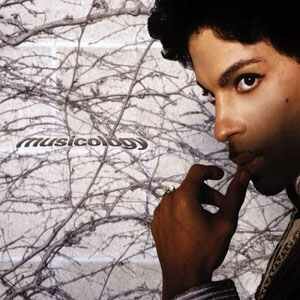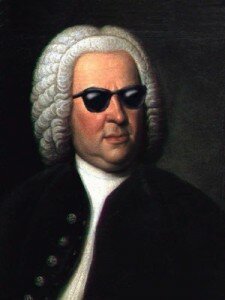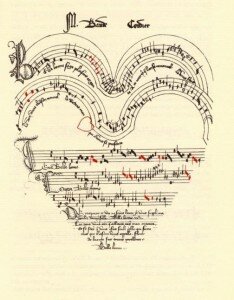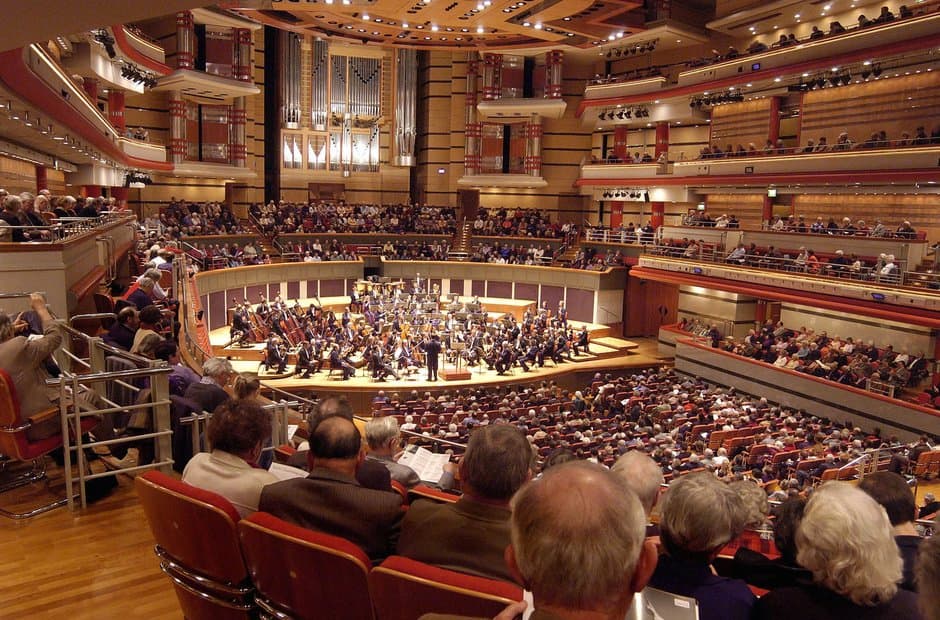
Prince: Musicology
If we go further back in time, we find the origins of musicology in earlier centuries. Starting with ‘historical musicology,’ scholars started to look at the composition, performance, reception, and criticism of music over time. Reception history, for example, permits us to know that some of the best-loved pieces of our time, such as Beethoven’s Fifth Symphony, opened to little critical acclaim, which we now know were due to the conditions at its premiere. Yet, 18 months later, at the urging of a music critic, the symphony again came into the repertoire and it has remained one of the best-known and beloved of Beethoven’s works over 200 years later.
Beethoven: Symphony No. 5 in C minor, Op, 67: I. Allegro con brio (London Classical Players; Roger Norrington, cond.)

Bach in Sunglasses
Bach: Overture (Suite) No. 3 in D Major, BWV 1068: II. Air, “Air on the G String” (Swingle Singers)
Without historical musicology, we wouldn’t know how to perform music of other times. We wouldn’t know what to do with mysterious signs on the music of past ages. In this work by Baude Cordier, the notes in red are performed differently than the notes in black. This work of the late 14th century reflects the experiments in the inventive rhythms of the Ars subtilior (more subtle art) style. But it took a musicologist to get back our knowledge of this very beautiful but mysterious notation system.

Cordier: ‘Belle, Bonne, Sage’
But historical musicology isn’t the only world of musicology. Once the historians had their fill of looking at their own history, they started looking elsewhere. First called ‘comparative musicology,’ the new field took the name ‘ethnomusicology’ and started by looking at non-Western music. Soon, however, as non-Western musicologists started looking back, ethnomusicology expanded to look at music from anywhere in the world from an anthropological or sociological perspective. And to make recordings of it and study it. Thus we can have the music of the Ba-Benzelé Pygmies appearing on the jazz recording of Herbie Hancock’s “Watermelon Man.”
When I studied historical musicology in the 1980s, we only studied music up to 1945. After that, the historians gave way to the composers, who were more versed in the post-war music and compositional possibilities. Now, at the beginning of the 21st century, all kinds of musicologists study all kinds of music, You can find dissertations on the role of the UK singles chart; the culture of aspiration on X Factor; opera in the 21st century; contemporary American hip-hop discussed in terms of race, gender, and sexuality; aria style in the operas of Handel and so on.
In a piece of music criticism in your local newspaper, if you still have a music reviewer, you’ll run into musicology at work. If you wonder how your local radio DJ knows so much about the history of this band or the other, that’s musicology. Those program notes you read before a concert – musicologists again. In short, The world of musicology is the world of music itself.





You wrote in a correlative subject. Actually meaning of Musicology can be change man to man. But you described it very perfectly. Great JOb